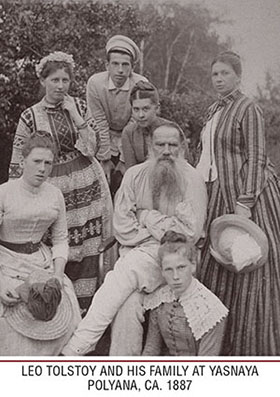A Running Press Miniature Edition
2014 by Running Press
All rights reserved under the Pan-American and International Copyright Conventions
This book may not be reproduced in whole or in part, in any form or by any means, electronic or mechanical, including photocopying, recording, or by any information storage and retrieval system now known or hereafter invented, without written permission from the publisher.
The proprietary trade dress, including the size and format, of this Running Press Miniature Edition is the property of Running Press. It may not be used or reproduced without the express written permission of Running Press.
Library of Congress Control Number: 2014941233
E-book ISBN: 978-0-7624-5560-7
Running Press Book Publishers
A Member of the Perseus Books Group
2300 Chestnut Street
Philadelphia, PA 19103-4371
Visit us on the web!
www.runningpress.com
Contents

Introduction

not only is War an d Peace one of the longest novels ever written, but its also one of the most universally reveredmany proclaiming it the best novel, period. It has influenced the likes of such greats as Mahatma Gandhi, Martin Luther King Jr., and Nelson Mandela, who wrote that, while unjustly imprisoned for twenty-seven years, One book that I returned to many times was Tolstoys great work, War and Peace .
So, whats all of the hubbub about? Tolstoys account of the tumultuous Napoleonic Warsas experienced by four aristocratic Russian familiesis a masterpiece for so many reasons. Perhaps most importantly, the book is an insightful look into the heart of a nation, and, indeed, Tolstoy has been referred to as the guardian of Russias soul. Even though he employed a third-person narrator, Tolstoys sprinkling of we and our throughout the book created an indelible connection between the author and readersRussian readers, in particular.
Even beyond that, though, there is universality in Tolstoys words. German writer Thomas Mann said, To read him... is to find ones way home... to everything within us that is fundamental and sane.
Although youre just one sitting away from having read one of the greatest novels ever written, I would be remiss if I didnt encourage you to read the real thing someday. The hubbub is completely warranted. For now, though, get ready to be transported back to early nineteenth-century Russia, where youll mingle with the most elite members of society and follow them through tragedy and triumph over the course of fifteen years. Though youll venture far and wide, as Mann attests, youll find yourself back home at the end, richer and wiser from the journey.
The Life
 of
of 
Leo Tolstoy

Leo Nicolayevich Tolstoy was born on September 9, 1828, at his aristocratic familys rural estate, Yasnaya Polyana (Bright Glade), situated 130 miles south of Moscow, in the Tula region. His family was very, very wealthy. When his parents married in 1822, his mothers dowry included a mind-boggling 800 male serfs.
Though privileged, Tolstoys childhood was filled with death. His mother passed away when he was just one year old, his father dying of apoplexy when Tolstoy was nine. He and his four siblingsthree brothers and one sisterwere raised at Yasnaya Polyana by various extended family members (many of whom also died during Tolstoys childhood) and educated at home.
In 1845, Tolstoy enrolled at Kazan University to study law and Oriental languages. He was a horrible, undisciplined student and left before graduating.
Tolstoy inherited his share of his familys estatewhich included 4,000 acres of Yasnaya Polyana and 350 serfsin 1847. He spent the following years living between St. Petersburg, Moscow, and Yasnaya Polyana, developing a nasty gambling habit. He gambled away a lot of his wealth, incurring debts that had to be paid by selling off parts of Yasnaya Polyana. Another of his debaucheries involved bedding numerous peasant women, often.
In 1851, Tolstoy joined the army, stationed in Caucasus and eventually serving in the Crimean War, an experience that directly inspired War and Peace . It was during his service that his first worksnovellas and storieswere published.
Weary of his addiction to gambling and women, Tolstoy began envisioning a more ascetic lifeplanting the seeds for the existential crisis he would have twenty years later. More immediate were a couple of attempts at social activism, including the 1859 establishment of a school to educate the children of his serfs.
After his military experience, Tolstoy traveled Europe, eventually winding up back in Moscow, where he met Sofya (called Sonya) Bers, who was from an enormously wealthy family that lived in the Kremlin. At the time of their marriage in 1862, Tolstoy was 34, Sonya only 18.
Perhaps setting the stage for the eventual dysfunction of their marriage, Tolstoy made Sonya read his diaries detailing the debauched escapades of his twenties, which included the fact that he had fathered an illegitimate son with a serf. Sonya was understandably scarred but apparently forgave her new husband for his cruel infliction. That said, they did, from time to time over the years, read each others diaries, resulting in huge rows and lingering jealousies.
By all accounts, the early days of their marriage were happy ones, with Sonya giving birth to thirteen children over the course of twenty- five years. Eight of these children survived childhood.
Tolstoy continued to write during this time, chiefly on what would become War and Peace. Parts of the novel were serialized between 1865 and 1867, thoroughly captivating readers. When it was published in its entirety for the first time in 1869, it sold out nearly immediately. Critics, on the other hand, werent quite sure what to make of the groundbreaking epic, though it didnt take long for them to come around and proclaim it a masterpiece.
Tolstoys second masterpiece, Anna Karenina , began appearing in serial form in 1873. Fellow Russian writer Fydor Dostoyevsky proclaimed it flawless as a work of art, and it sold about a zillion copies.
Shortly after the publication of Anna Karenina , though, Tolstoy began struggling with bouts of depression, futility, and self-doubteven suicidal thoughts. He found some peace in the company of peasants, even working in the fields alongside his serfs. He started studying ancient Greek and apprenticed to a boot maker. He became increasingly moody and irasciblevery difficult to live with. Poor Sonya tried to keep the household running smoothly.

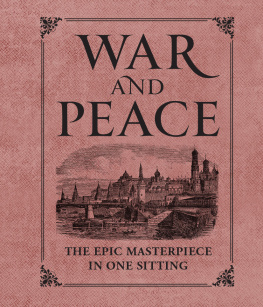

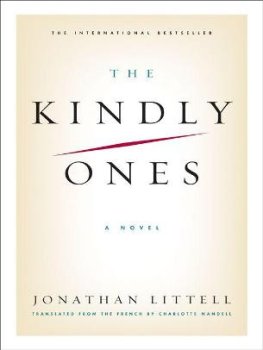
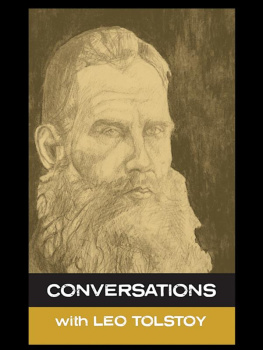
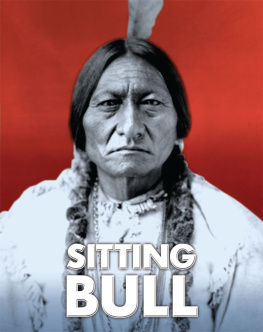
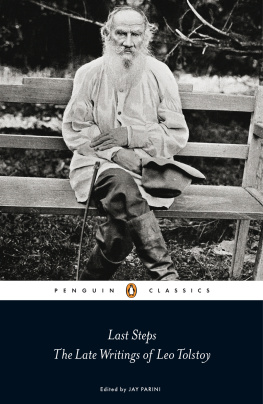
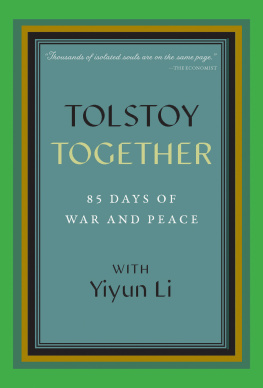
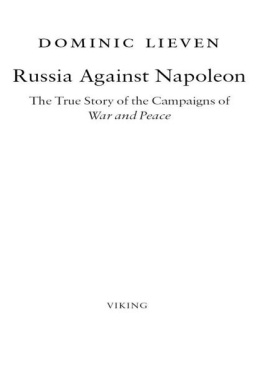
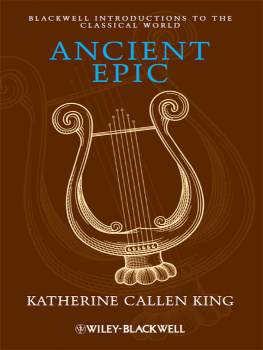
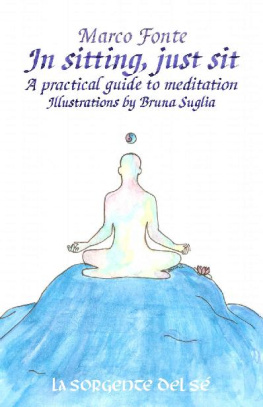
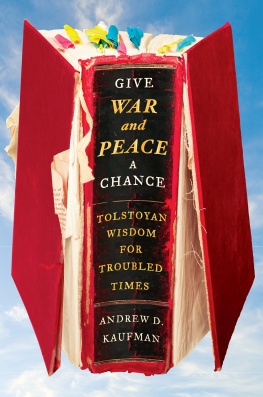
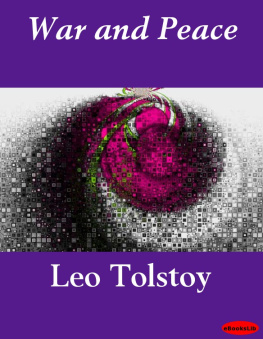


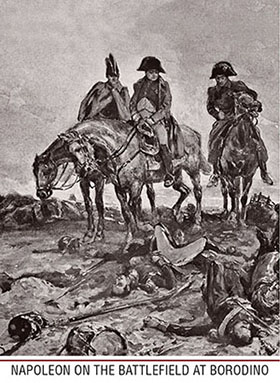
 of
of 


